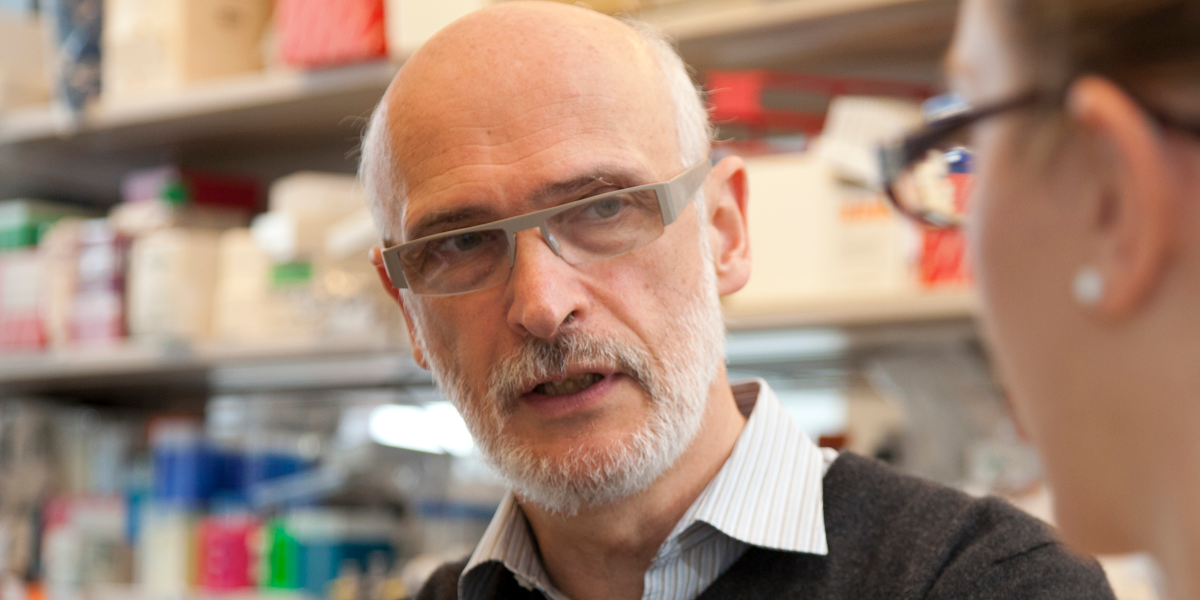Keeping peace in the gut
How gut bacteria work with the immune system to suppress the sort of inflammation linked to colon cancer.
Inspired by his collaboration with Ludwig clinical investigator Jedd Wolchok, Alexander Rudensky seeks out opportunities to move his research on the basic biology of immunity closer to the clinic. In a recent study, he examined how a cell that tames the immune response—the regulatory T cell—operates in the gut of mice, and he is now teasing out the implications for colon cancer.
The gut is home to trillions of commensal bacteria, many of which help us digest food. Regulatory T cells help shield these microbes from destruction by the immune system and protect the intestine from inflammation and damage. But how the bacteria communicate with T cells has been unclear.
In a new study, Ludwig MSK Director Rudensky and his colleagues identified a key role for metabolites produced by these bacteria, in particular the fatty acid butyrate, which is produced when bacteria digest dietary fiber. They found that applying the metabolites to mice that lacked microbes could bump up the production of regulatory T cells and calm immune-mediated inflammation in the gut. The researchers also traced the mechanism behind this effect, for instance showing how butyrate bumps up the production of Foxp3, a key protein that helps turn ordinary T cells into regulatory T cells. “Metabolites produced by commensal microorganisms serve as a means of communication with the immune system of the host,” Rudensky says.
Rudensky published his discovery in December, 2013, and is now exploring its implications for colon cancer, which can be fueled by gut inflammation. He is testing various metabolites in preclinical mouse models of colon cancer, and investigating whether he can alter the course of disease by applying butyrate or other microbial molecules. He is also examining how a proper balance of immune cells and microbes in the gut can affect the overall health of the immune system.
Rudensky’s research still has a long way to go before it can reap practical benefit. But he knows he is on the right course. “These metabolites likely have a major effect on colon cancer progression—and probably play a role in other cancers as well.”
REFERENCE
Arpaia N, Campbell C, Fan X, Dikiy S, van der Veeken J, deRoos P, Liu H, Cross JR, Pfeffer K, Coffer PJ, Rudensky AY. Metabolites produced by commensal bacteria promote peripheral regulatory T-cell generation. Nature. 2013 Dec 19;504(7480):451-5. PMID: 24226773
